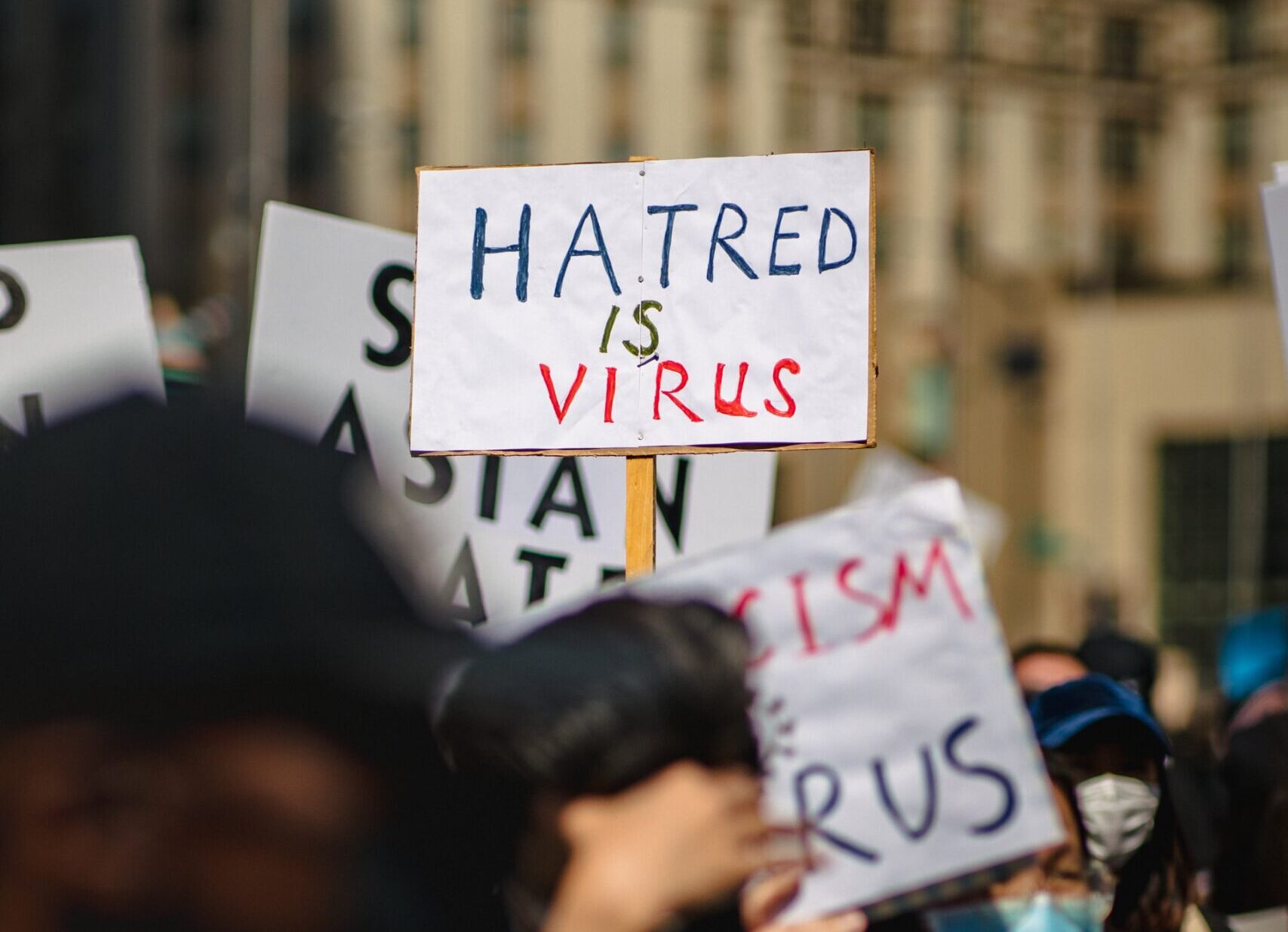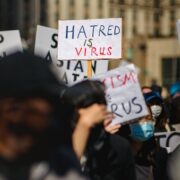
Hate crimes against AAPIs increased 76% from 2019 to 2020
IN 2020, reported hate crimes and incidents increased 20% in Los Angeles County, according to the Los Angeles County Commission on Human Relations (LACCHR) annual hate crime report released on Wednesday, Nov. 10.
In terms of numbers, countywide hate crimes jumped from 530 reported incidents in 2019 to 635 reported incidents in 2020.
“Similar to national trends, hate crimes and incidents have increased across the board in Los Angeles County,” shared Los Angeles County Board of Supervisors Chair Hilda L. Solis, Supervisor to the First District. “This report is another alarming reminder that we have a long way to go in building a more inclusive and just society. The LA vs. Hate initiative, which started through a motion I authored back in 2019, continues to be a critical tool for the county to combat against hate.”
The report defines a hate crime similarly to California state law: any criminal activity that, with evidence, is motivated by “bias, hate, or prejudice based on the victim’s real or perceived race/ethnicity, religion, ancestry, national origin, disability, gender, or sexual orientation.”
The report found that the increase is largely due to a 53% spike in racial hate crimes; crimes that targeted members of the Asian, Black, and Latino all rose dramatically. In 2020, Black Americans were overrepresented, comprising 42% of all racial hate crime victims. However, the Asian American and Pacific Islander (AAPI) community faced a 76% increase in reported hate crimes, coinciding with what the community already knew: misinformation and misrepresentation of the coronavirus pandemic rehashed xenophobic attitudes toward AAPIs.
AAPIs make up 15% of the county and were targeted in 11% of the reported racial hate crimes. In 23% of crimes, suspects blamed the victims for COVID-19. In 34% of crimes anti-Chinese language and slurs were used, and in 25% of crimes anti-immigrant, or xenophobic, slurs were used. The county’s report finds that hate crimes against other communities, namely the Black and Latino communities, exceeded the reports involving AAPI victims.
While annual hate crime reports conducted by jurisdictions and law enforcement provide perspective on crime trends, it’s worth noting that they don’t provide a very clear picture.
Hate incidents and hate crimes are notoriously underreported, according to reports from the U.S. Department of Justice, which issued a Bureau of Justice Statistics National Crime Victimization Survey in 2015 that detailed common reasons why people do not report hate incidents to the police.
According to that survey, respondents felt that the incident was too unimportant to warrant a report, they believed the police wouldn’t do much to help, police wouldn’t be inclined to get involved, and reporting the incident would bring more harm to the victim.
Asians and Asian Americans are among the least likely to report hate crimes (and other crimes) to the police. Broadly, experts say that the community is less inclined to bring unwanted attention to their families, many members of whom are immigrants.
D.J. Ida, executive director of National AAPI Mental Health Association told NBC News earlier this year, “From a psychological standpoint, sometimes we don’t want to talk about the problems because, and I see this in younger people who were immigrants or children of immigrants, their parents had worked so hard for them. They don’t want to bur[1]den their parents. Because it’s a sense of gratitude and it’s very, very powerful.”
Earlier this year, the prominent policy and research non-profit AAPI Data found that while a quarter of Asian Americans said they’ve experienced at least one anti-Asian hate incident, only about 30% say they were “very comfortable” reporting hate crimes to law enforcement.
Attitudes toward law enforcement, in general, have wavered, especially over the last decade following patterns of aggression and violence on unarmed people, especially people of color, by police officers that are routinely captured on video.
But understanding the ways in which different communities experience racism and bigotry shouldn’t be viewed as an “oppression Olympics” but more so as different manifestations of the same problem.
Karthick Ramakrishnan, founder of AAPI Data, said earlier this year that “[t]he kinds of stereotypes and the kinds of discrimination that black people face [are] different, and in some cases more severe. When you’re talking about housing discrimination, as well as dis[1]crimination by police, it’s much higher for black people than it is for Asians.
He added, “But I think when it comes to these hate incidents, it seems that there’s a greater similarity in the frequency of hate incidents, even though the exact nature of those hate incidents might vary.”






